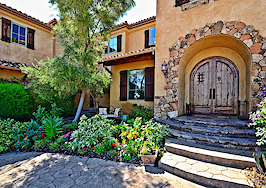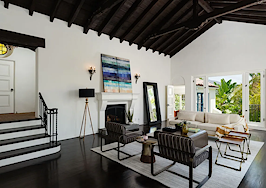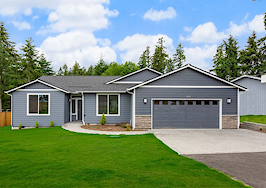Join the exceptional and become a Sotheby's International Realty agent.
Learn More
The first things affluent clients often see when looking at a luxury home is its style, size, and splendor — but for some clients, the true “wow factor” may be the home’s ability to nurture a lifestyle that’s full, fulfilling, and aligned with their values.

Nicole Colclough
“Health, wellness, and sustainability are a large part of the conversations I have frequently with clients, especially among my buyers in the San Francisco Bay Area and Peninsula,” says Nicole Colclough, Real Estate Associate with Golden Gate Sotheby’s International Realty. “These topics naturally come up when I ask my clients to share about their ‘dream home, or what their current home is lacking.”
Laura Zambratto, Real Estate Associate at Daniel Gale Sotheby’s International Realty, concurs. “Given that there are numerous overlapping dimensions of wellness — for example, environmental, social, physical, emotional, and intellectual — I make a point to remind my buyers that it’s not just the house they’re buying, but the entire lifestyle and environment,” she says.
Here are three general priorities agents can consider as they support their clients in achieving health and wellness goals.
A holistic take on health and home
Consciously or subconsciously, clients care about the ways their future home can improve their quality of life — but as Zambratto noted before, it sometimes takes an agent to help them put things into perspective. “My focus with buyers is to have them look at the big picture,” she says.

Laura Zambratto
“Home is a feeling — one that emerges from the joy you get by being there or going there; you love the ride to your house, the street where you live, the people you spend time with, the garden you tend, and the window seat where you enjoy a good book,” she says. “This is where we need to pay attention, as a partner to our clients in the search for their home.”
This broader view of the home’s benefits should be expanded beyond the four walls of the property. “Clients desire a lifestyle with an indoor-outdoor connection,” says Colclough. “Walkability is key, with close proximity to a town, as well as the option to walk or bike to school and work. They also want walking, hiking, and biking trails, and access to open, natural spaces and wilderness preserves.”
Zambratto adds that being in the vicinity of quality food stores, gyms and sports groups, and holistic health offerings creates further value for wellness-conscious clients.
Bringing light to homeowners’ lives
When they talk to their buyers about finding a future home that bolsters their overall positivity and wellbeing, both agents frequently receive the same request: natural light.
“This is one of the biggest in-demand features of luxury properties,” explains Zambratto. “Many buyers are very interested in exposure coordinates — where are the north, south, east, and west-facing rooms and windows? Natural light has proven to reduce blood pressure and stress while increasing focus.”
Colclough adds that human-centric lighting and LED systems calibrated to internal, circadian biorhythms can also bring about many of the same advantages.
Aspiring toward a net zero lifestyle
It’s not just personal health that clients are prioritizing — it’s the health of their communities and the planet, which is why sustainability is top-of-mind for many when evaluating properties. In particular, renewable energy, passive design, and resilience are key themes that emerge when speaking to buyers about their ambitions to live a “net zero” life. Here’s a more detailed look at these three sustainability pillars:
Renewable energy is the production and storage of the electricity required to power the home. This typically involves solar panels and may also factor in micro inverters that keep the home connected to the grid in the event of a power loss, as well as solar batteries.
Passive design emphasizes eco-friendly design choices that maximize energy efficiency while minimizing resource consumption. The home’s orientation, climate conditions, insulation, and materials all play a role in reducing its overall carbon footprint.
Finally, resilience refers to the property’s capacity to adapt to a changing world. HEPA filters to ensure air quality, water filtration, and softening systems that include UV purification processes, drought- and fire-tolerant landscaping, and structures that use stone, stucco, cement, and insulated concrete all contribute to the home’s long-term quality and endurance.
Clients want a house that has it all
There are numerous health and wellness amenities that can appeal to buyers — steam rooms, spa showers, and massage spaces, home fitness studios, tranquil gardens with water features — but sometimes, it takes an agent to help clients truly appreciate what their lifestyle could look like.
“Clients want to associate with knowledgeable partners that value joyful, well-balanced living,” says Zambratto. “Wellness really is the nucleus of attaining a higher level of physical, mental, and spiritual harmony, so that rather than simply surviving, you’re thriving.”















